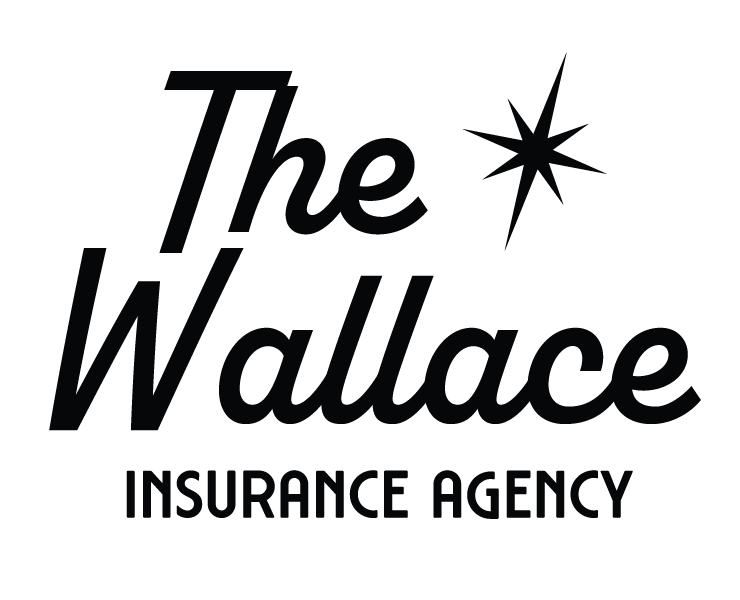
Commercial Insurance Policy
Protecting your business from unforeseen risks is essential, and having the right commercial insurance policy can make all the difference. But with so many options available, choosing the right one can be overwhelming. That’s why we have compiled this guide to help you navigate through the key considerations when selecting a commercial insurance policy.
When it comes to protecting your business, it’s important to understand your specific needs and risks. Whether you run a small retail store, a construction company, or a tech startup, the insurance requirements may vary. This is where our expertise comes in. Our team of experts specializes in finding the perfect insurance coverage tailored to your unique business needs.
In this article, we will dive into the key factors to consider when selecting a commercial insurance policy. From assessing the risks your business faces to determining the coverage types you need, we will guide you through every step of the decision-making process. By the end, you will have the knowledge and confidence to choose the right policy that provides comprehensive coverage and peace of mind.
Don’t let unexpected events jeopardize your business. Read on to find out how to select the perfect commercial insurance policy for your needs.
Understanding commercial insurance
Commercial insurance refers to the various types of insurance policies designed to protect businesses from a wide range of risks and liabilities. These policies are essential for safeguarding a company’s assets, operations, and financial stability in the event of unexpected events or unforeseen circumstances. Unlike personal insurance, which covers individual needs, commercial insurance is tailored to the specific requirements of a business, taking into account factors such as the industry, size, location, and potential risks associated with the company’s activities.
Commercial insurance can cover a variety of areas, including property damage, liability, worker’s compensation, and business interruption. Each type of policy is designed to address a specific risk or set of risks that a business may face, providing financial protection and ensuring the continuity of operations. Understanding the different types of commercial insurance and their respective coverage is crucial for business owners and decision-makers when it comes to selecting the right policy for their organization.
Navigating the complex world of commercial insurance can be daunting, but with the guidance of experienced insurance professionals, business owners can make informed decisions that safeguard their company’s future. By carefully assessing their risks, understanding the available coverage options, and comparing policies from different providers, businesses can ensure that they have the necessary protection in place to mitigate potential losses and maintain their competitive edge in the market.
Importance of having the right commercial insurance policy
Protecting your business from unforeseen risks is essential for its long-term success and sustainability. Having the right commercial insurance policy in place can make all the difference in ensuring your company’s financial stability and resilience in the face of unexpected events. Whether it’s natural disasters, accidents, lawsuits, or other types of liabilities, the right insurance coverage can provide the necessary financial resources to help your business recover and continue operations without significant disruption.
Beyond the obvious financial benefits, having the right commercial insurance policy can also provide valuable peace of mind for business owners and their employees. Knowing that your company is adequately protected against potential risks can alleviate stress and allow you to focus on the core aspects of your business, such as growth, innovation, and customer service. This can lead to increased productivity, better decision-making, and a stronger competitive position in the market.
Furthermore, many commercial insurance policies can also provide coverage for legal and regulatory compliance, ensuring that your business is operating within the appropriate guidelines and mitigating the risk of costly fines or penalties. This can be particularly important for businesses operating in highly regulated industries or those that must adhere to specific industry standards or certifications.
Types of commercial insurance policies
When it comes to commercial insurance, there are several different types of policies available to meet the diverse needs of businesses. Some of the most common types of commercial insurance include:
Property insurance: This type of policy covers the physical assets of a business, such as buildings, equipment, inventory, and other tangible property, in the event of damage or loss due to events like fires, natural disasters, theft, or vandalism.
Liability insurance: Liability insurance protects a business from claims of bodily injury, property damage, or other types of liability that may arise from the company’s operations or the actions of its employees. This can include general liability, professional liability, and product liability coverage.
Workers’ compensation insurance: This policy provides financial protection and medical benefits for employees who are injured or become ill as a result of their job duties. It is typically required by law in most jurisdictions.
Business interruption insurance: Also known as business income insurance, this coverage helps replace lost income and cover ongoing expenses if a business is forced to temporarily suspend operations due to a covered event, such as a natural disaster or equipment failure.
Commercial auto insurance: This policy provides coverage for vehicles owned or used by a business, including liability, collision, and comprehensive protection.
Cyber liability insurance: As businesses increasingly rely on technology and digital systems, cyber liability insurance has become essential to protect against data breaches, cyber attacks, and other digital threats.
By understanding the different types of commercial insurance policies and how they can benefit your business, you can make more informed decisions when selecting the right coverage to meet your specific needs.
Assessing your business insurance needs
Determining the appropriate commercial insurance coverage for your business requires a thorough assessment of your unique risks and exposures. This process involves carefully evaluating the various aspects of your operations, including the industry you operate in, the size and scope of your business, your geographic location, and the specific activities and services you provide.
One of the first steps in this assessment is to identify the potential risks and liabilities that your business may face. This can include everything from property damage and liability claims to employee injuries, cyber threats, and business interruptions. By understanding the specific risks associated with your business, you can better determine the types of coverage you need to protect your company’s assets, operations, and financial stability.
Another important factor to consider is the size and complexity of your business. Larger organizations with multiple locations, a diverse workforce, and complex operations may require more comprehensive commercial insurance coverage compared to smaller, single-location businesses. Additionally, the specific industry in which your business operates can also influence the types of risks you face and the insurance policies that may be most appropriate.
Factors to consider when choosing a commercial insurance policy
When selecting a commercial insurance policy, there are several key factors to consider to ensure that you are getting the right coverage for your business needs. These factors include:
Coverage limits: Carefully evaluate the coverage limits of each policy, ensuring that the limits are sufficient to protect your business from potential losses. Consider factors such as the value of your assets, the potential for liability claims, and the potential for business interruption.
Deductibles: Understand the deductibles associated with each policy, as this can significantly impact your out-of-pocket costs in the event of a claim. Choose a deductible that balances your risk tolerance with your budget.
Exclusions and limitations: Thoroughly review the policy’s exclusions and limitations to understand what is and is not covered. This can help you identify any potential gaps in coverage that may need to be addressed.
Premium costs: Evaluate the premium costs of each policy, taking into account the coverage limits, deductibles, and overall value the policy provides. Compare quotes from multiple insurers to ensure you are getting the best value for your money.
Reputation and financial stability of the insurer: Research the insurance provider’s reputation, financial strength, and claims-handling history to ensure they will be able to fulfill their obligations in the event of a claim.
Industry-specific coverage: Depending on the nature of your business, you may require specialized coverage that addresses the unique risks and exposures within your industry. Work with an experienced insurance professional to identify these needs.
By carefully considering these factors, you can make an informed decision and select a commercial insurance policy that provides comprehensive coverage and protects your business from the risks it faces.
Working with an insurance broker or agent
When it comes to navigating the complex world of commercial insurance, working with an experienced insurance broker or agent can be invaluable. These professionals have a deep understanding of the insurance industry, the various coverage options available, and the specific needs of businesses in different industries.
An insurance broker or agent can help you assess your business’s unique risks and exposures, and then identify the most appropriate commercial insurance policies to address those needs. They can also provide guidance on the coverage limits, deductibles, and other policy details to ensure that you are getting the right level of protection for your business.
Moreover, insurance brokers and agents have access to a wide range of insurance providers, allowing them to compare quotes and negotiate on your behalf to secure the best possible coverage at the most competitive rates. This can be particularly beneficial for businesses that may not have the time or resources to research and evaluate multiple insurance options on their own.
Reviewing the policy terms and conditions
Once you have selected a commercial insurance policy, it’s crucial to carefully review the terms and conditions to ensure that you fully understand the coverage, exclusions, and limitations of the policy. This step is essential for avoiding any surprises or misunderstandings in the event of a claim.
When reviewing the policy, pay close attention to the following:
Coverage limits: Ensure that the coverage limits are sufficient to protect your business from potential losses.
Deductibles: Understand the deductible amounts and how they may impact your out-of-pocket costs in the event of a claim.
Exclusions and limitations: Carefully review the policy’s exclusions and limitations to identify any potential gaps in coverage.
Policy conditions: Familiarize yourself with the policy’s conditions, such as reporting requirements, claim notification procedures, and any specific actions you must take to maintain coverage.
By thoroughly reviewing the policy terms and conditions, you can have confidence that your commercial insurance coverage is tailored to your business’s unique needs and that you are prepared to navigate the claims process effectively should the need arise.
Understanding the claims process
In the event of a covered incident or loss, understanding the commercial insurance claims process is crucial for ensuring a timely and successful resolution. The claims process can vary depending on the insurance provider and the type of coverage, but there are some general steps that businesses should be aware of.
The first step is to promptly report the claim to your insurance provider, following the specific procedures outlined in your policy. This may involve submitting a written claim, providing supporting documentation, and cooperating with any investigation or assessment conducted by the insurer.
Once the claim is filed, the insurance provider will review the details and determine the appropriate course of action. This may include assessing the extent of the damage, evaluating the coverage limits, and calculating the potential payout. Throughout this process, it’s important to maintain clear communication with the insurance provider, respond to any requests for information, and provide any necessary documentation to support your claim.
The Wallace Insurance Agency
Selecting the right commercial insurance policy is a critical decision for any business, as it can mean the difference between weathering unexpected events and facing potentially devastating financial consequences. By understanding the different types of commercial insurance, assessing your business’s unique risks and exposures, and carefully evaluating policy options, you can ensure that your company is adequately protected and positioned for long-term success.
Throughout this process, it’s important to work closely with experienced insurance professionals, such as brokers or agents, who can provide valuable guidance and expertise. These experts can help you navigate the complex landscape of commercial insurance, identify the most appropriate coverage, and ensure that you are getting the best value for your money.
Ultimately, investing in the right commercial insurance policy is an essential part of safeguarding your business and securing its future. By taking the time to carefully consider the key factors outlined in this article, you can make an informed decision and choose a policy that provides the comprehensive protection your business needs to thrive, even in the face of unexpected challenges.
For personalized guidance on finding the right commercial insurance policy for your business, The Wallace Insurance Agency offers expert advice and tailored solutions to protect your assets and ensure peace of mind.
More Posts

Pet Grooming Liability Insurance
In the world of pet grooming, you can do everything right and still end up facing a claim. A dog wriggles during a cut and gets nicked. A cat panics and bolts out the door. A client claims their dog is limping after a nail-trimming session.

Mobile groomers are you covered? Here’s What You Need to Know
Running a mobile pet grooming business means freedom, flexibility, and fur on everything. But it also means you’re facing a unique set of risks every time you pull out of the driveway.

The Shocking Truth: Why Every Electrician Needs Business Insurance
As an electrician, you aren’t just a skilled tradesman. You’re often a business owner and entrepreneur. And like all businesses, electrical companies come with risks that don’t go away just because you know what you’re doing.

Electrical Contractors Insurance
You power the world. Let us protect your work. Running an electrical contracting business isn’t for the faint of heart. You deal with high-risk activities daily, from live wires, tight deadlines, high-voltage equipment, and much more. One wrong move won’t just short a circuit. It could blow up your entire business.
*Get a Quote*
The Wallace Insurance Agency
Choose the Wallace Insurance Agency for comprehensive and specialized insurance solutions tailored to your unique needs. As an experienced insurance broker, we offer expertise in all types of insurance, including non-profit and commercial coverage. Our dedicated team works closely with you to understand your specific requirements and provide personalized recommendations.
With a commitment to exceptional service and thorough policy reviews, we ensure that you receive the best possible protection. Trust the Wallace Insurance Agency to safeguard your assets and provide peace of mind, knowing you have a reliable partner in your corner.
Be protected
Personalized protection for you, your family, and your business
Get Maximum Coverage
We identify hidden gaps and exclusions in your policy, providing expert advice to ensure you're fully protected. With our help, you can confidently secure the best possible coverage.
Always Available
We're available to assist you anytime, ensuring your needs are met promptly and efficiently. Whether you have questions or need guidance, our team is always ready to provide expert support.
Communication
Effective communication is at the heart of our service, ensuring you are always informed and confident in your decisions. We prioritize clear, timely updates and are always available to answer any questions you may have.







